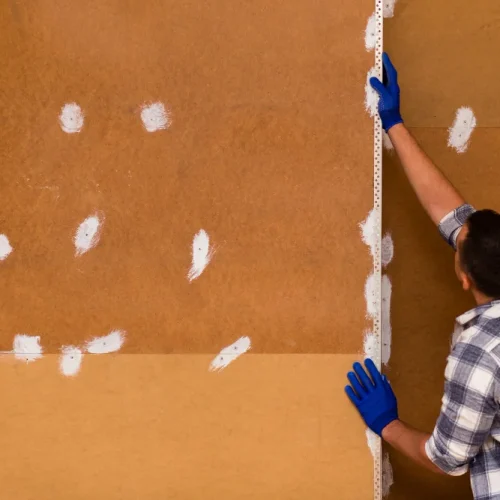“How do I find people I truly connect with when everything around me feels foreign?”
That was the first question I asked myself when I moved from Lahore to Vienna for my studies. The crisp alpine air, the orderly trams, the silent stares in supermarkets—it was all beautiful, but isolating. I spoke the language well enough, yet my world suddenly felt muted.
Making friends in a new country isn’t just about avoiding loneliness; it’s about rebuilding your identity, finding your place in a new culture, and creating a support system from scratch. It’s one of the most human things we need to do—yet one of the hardest when you’re starting over.
In this article, I’ll walk you through practical, research-backed, and experience-tested strategies that actually work. Whether you’re a student, expat, digital nomad, or immigrant, these insights will help you feel less alone and more at home.
Understand the Psychology of Belonging
Friendship in a new country isn’t just about proximity—it’s about belonging. According to psychologist Abraham Maslow, our need to belong comes right after basic needs like food and safety.
A study published in the International Journal of Intercultural Relations found that newcomers who develop meaningful friendships within the first six months adjust faster emotionally and socially.
Takeaway: Prioritise emotional connection over social quantity. It’s better to have one or two meaningful connections than a large group of superficial ones.
Step 1: Start with Shared Spaces
Local community centres, libraries, and language meet-ups often serve as safe, inclusive spaces for people looking to connect. In Vienna, I joined a “Sprachcafe” (language café) where Austrians and foreigners practised German over coffee. It wasn’t just about grammar—it was about learning local jokes, expressions, and even how Austrians express sarcasm.
Tips:
- Search “free local events” on Facebook or Meetup.com
- Visit the community bulletin board at your local library or grocery store
- Volunteer: platforms like Idealist or GoVolunteer offer chances to give back and meet others
Step 2: Leverage Your Identity as a Bridge
Rather than suppress your background, use it as a conversation starter. I often brought Pakistani snacks to university events, and to my surprise, people were fascinated. What I thought made me different actually made me memorable.
According to Dr. Tanya Menon, professor at Ohio State University, “Weak ties—people outside your immediate circle—are the best source of fresh opportunities and perspectives.” In a new country, that’s exactly the dynamic you want to tap into.
Takeaway: Your culture is not a barrier; it’s your secret friendship weapon.
Step 3: Make the First Move (Yes, It Feels Awkward)
I won’t lie—I spent hours wondering if texting a classmate to grab coffee would make me seem needy. But every time I took the risk, it paid off.
Friendship often begins with initiating a low-pressure invite:
- “Hey, I noticed you like [insert shared interest], fancy checking out [related event] sometime?”
- “I’m trying to explore local spots—any favourites you’d recommend? Want to join?”
Even a compliment can break the ice. Once, I told someone I liked their tote bag. We ended up bonding over our shared love for second-hand shops.
Practical tip:
Make a list of 5 low-stakes events or spots you can suggest to others—parks, cafés, weekend markets.
Step 4: Learn the Local Social Codes
Every country has unwritten rules about social interaction. In Germany and Austria, punctuality and formality are valued. In Italy, warmth and spontaneity are often welcomed.
A sociologist I interviewed from the University of Graz, Dr. Lukas Reiter, shared, “One of the biggest mistakes newcomers make is assuming friendliness means the same thing everywhere. Understand the rhythm of how locals build trust.”
Actionable Tip:
- Observe: Watch how locals interact in queues, at cafés, during meet-ups.
- Mirror gently: Adapt without imitating.
- Ask questions: “How do people usually hang out here?”
Step 5: Use Technology to Your Advantage
In my second month abroad, I downloaded Bumble BFF and Tandem (a language exchange app). Within a week, I had coffee with a French au pair and movie night with a Brazilian architecture student.
Platforms to try:
- Bumble BFF – make platonic friendships in your area
- Meetup.com – hobby-based group events
- Tandem / HelloTalk – language exchanges that often turn into friendships
- Facebook groups like “Expats in [City]” or “[City] for Internationals”
Step 6: Be Consistent and Patient
Real friendships don’t usually form overnight. In my case, it took around three months of repeated meetups before I felt I had a “real friend” abroad. Consistency builds trust.
Don’t get discouraged if the first few attempts feel forced or awkward. It’s part of the process.
Create a rhythm:
- Set a goal: one new connection every two weeks
- Join a recurring group event: weekly yoga, monthly book club
Frequently Asked Questions (FAQ)
How long does it take to make friends in a new country?
Studies suggest it can take 90 hours of interaction to form a real friendship. Be patient but proactive.
What if I’m introverted?
Start with 1:1 interactions. Use apps like Bumble BFF where you can filter for similar personalities. You don’t need a big circle—just a few quality connections.
Should I only try to befriend locals?
No. Friendships with other expats can be just as meaningful and can help you transition more smoothly into the local culture. Ideally, have a mix of both.
What if there are language barriers?
Use language exchanges to improve communication, and don’t be afraid to use gestures, humour, or simple English. Most people appreciate the effort.
Final Thoughts: Friendship as a Skill, Not Just Luck
Making friends in a new country isn’t just about being outgoing. It’s about being intentional, authentic, and a little bit brave. Each attempt, whether successful or not, brings you closer to your community.
If you’re reading this because you’re struggling, I promise you’re not alone. Most of us have felt the quiet ache of not belonging. But with these strategies, patience, and a bit of vulnerability, you will find your people.
Have you tried any of these methods? Or do you have your own tip that worked?
Share your story in the comments—someone else might need it today.
Read Also: How Far Can You Drive on a Spare Tyre?









